9, February 2020
Ambazonia Interim Gov’t hails boycott of French Cameroun February twin poll 0
The Southern Cameroons Interim Government in exile on Sunday hailed the huge success in the lockdown against French Cameroun teleguided elections in the territory.
Addressing a cream of Southern Cameroonian elites in Holland, Vice President Dabney Yerima declared “Glory and immortality for our Ambazonian martyr and jailed leaders” after reading aloud a report about the complete boycott of the so-called twin poll in Southern Cameroons.
Cameroon government sources speaking on condition of anonymity indicated that Biya may soon be forced to change his Anglophone policy or pushed out of power in Yaoundé.
Vice President Dabney Yerima also spoke of a new plan to map a new Ambazonia Interim Government strategy backed by key Southern Cameroons think tanks in Europe, South Africa and the United States. A move that will definitely signal an escalation in self defense operations against the Francophone dominated Cameroon government army.
Comrade Yerima revealed that prior to the French Cameroun elections, pro Yaoundé militias operating in Southern Cameroons and elements of the Rapid Intervention Battalion (BIR) stepped up attacks against innocent Southern Cameroons civilians with troops loyal to the Biya regime firing French-designed rockets from Mbouda in East Cameroun into the Mezam County.
The Southern Cameroons second-in-command condemned Prime Minister Dion Ngute for holding a campaign rally in La Republique du Cameroun’s self-designated security zone in Buea.
Sunday’s session of the “Ambazonia Interim Government Briefing” was devoted mainly to the elections in Ground Zero. Vice President Dabney Yerima noted that the success of the boycott will begin a new process to tackle the crucial task of restoring unity to the many Southern Cameroons factions.
Yerima furthered that the Ambazonia leader, President Sisiku Ayuk Tabe long agreed to a political and organizational reforms to cement the unity drive among all Southern Cameroons groups.
Amba News Update:
The Yaounde-organized elections flopped. Here are the statistics from a loyal ELECAM official:
1. 98% of Rural Ambazonia DID NOT Participate
2. 90% of Urban Ambazonia DID NOT Participate.
This gives a boycott rate of 98.45%; meaning there was a miserable 1.55% turnout.
Now, out of the 1.55%, a majority was soldiers and French Cameroun civilians paid and ferried across the Mungo
Cameroon Concord News Update
• Buea is a graveyard. The silence is deafening. The churches and so called polling stations were empty. No elections whatsoever.
• Kumba is a Ghost town. Only SDO out voting. Early morning gunshots from self-defence forces.
• Mamfe Extremely Quiet. Only Mayor and SDO with foreign occupiers out.
• Victoria is deadly silent. No movement.
• Muyuka is a no go area.
Scandy Media Elections boycott updates:
1. Gunshots in Kumba, Buea, Alakuka, Mbengwi, Rendez Vous, Kumbo,etc The case of Mbengwi saw a police officer shot but rushed to the hospital.
2. Mile 7 & 8 Mankon started as early as 3 am as well as Buea 2 am : Prisoners are transported in Buea to go and vote to deceive the world :
3: Bafut had the post office visited by the consortium of fire 🔥 simply because voting materials were hidden inside the building
4: Muyuka is not left out as joint forces in collaboration with most barracks and their Generals fires gunshots to chase those ferried from French Cameroun to cast votes:
5: In Mbah – Kumbo Commander Capo of Bui and his boys transported, mounted then fired explosives that echoed all over Kumbo :
6: Victoria started in a good footing with almost everywhere shutdown this morning: We are told some CPDM enablers are in a conclave planning to open at least 4 polling stations with some few at the barracks but the feedback so far is positive
7: Most polling stations have been hit and boxes destroyed by Bui warriors causing the regime to dispatch at least 4 armored cars that are now hiding their election officers in neighborhoods around Nji
By Asu Isong in London
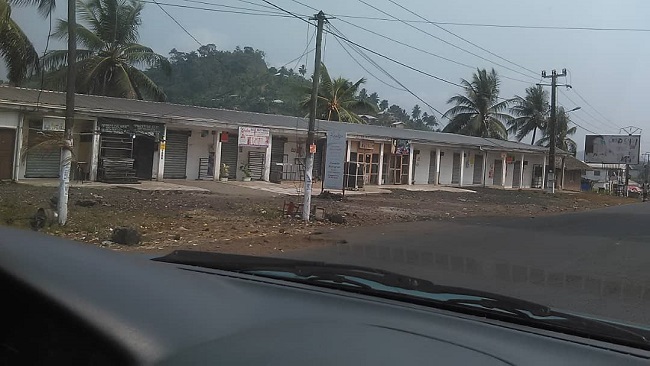
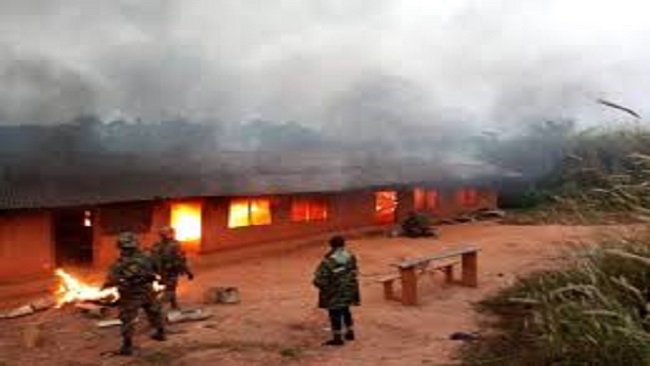

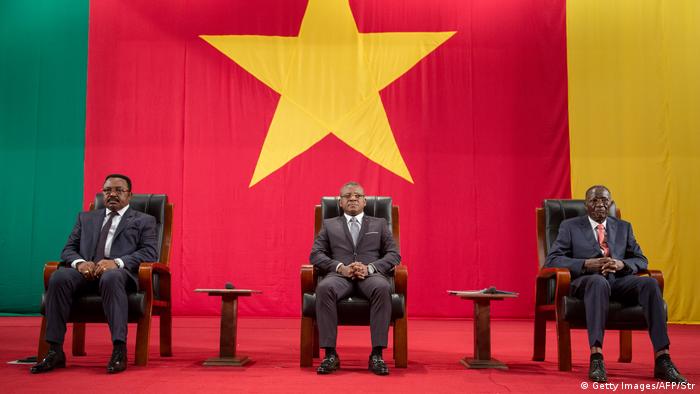
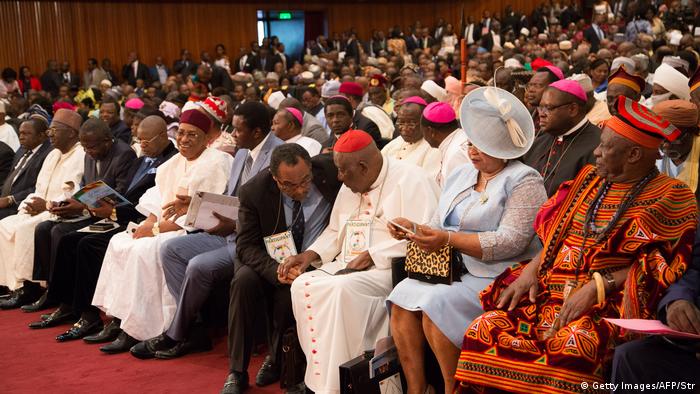
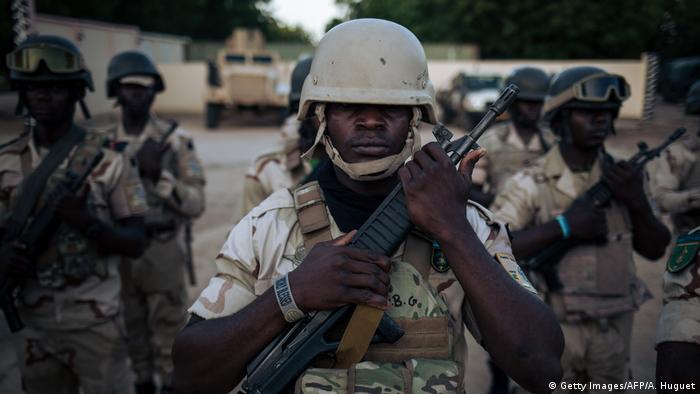
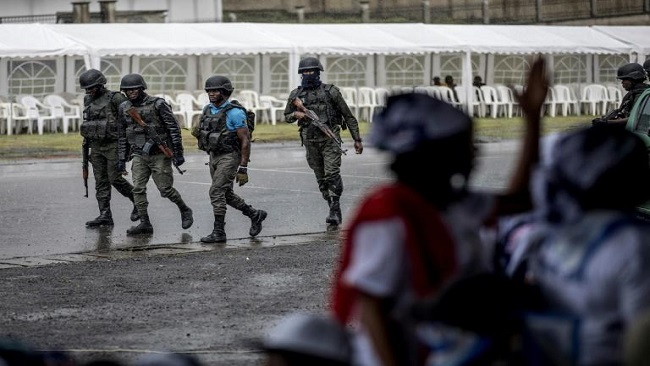

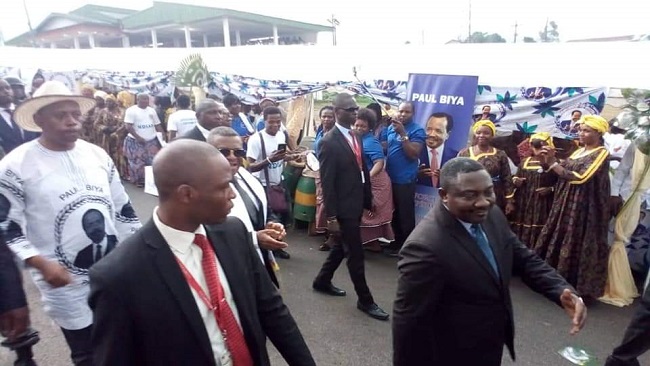

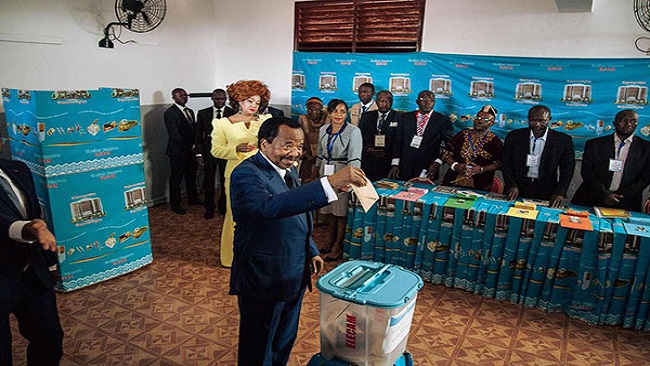




















10, February 2020
Biya Francophone regime steps up propaganda war amid bloody crackdown on Southern Cameroonians 0
Brute force has been the main weapon of the regime in Yaoundé as it has sought to crush growing Southern Cameroons uprising and quest for an independent state, killing thousands of people including women and children and torturing hundreds more. But the entire Cameroon nation has also been besieged by relentless propaganda.
In a political campaign period that has seen at least 98 die and escalating violence in all of Southern Cameroons, state radio and television including private media organizations owned by regime cronies have been blaring out songs exalting the 86 year old President Biya as the father of the nation with some anointing him president for all eternity.
The ruling CPDM crime syndicate supports President Paul Biya, one of the world’s oldest and longest-serving leaders, who has ruled with a steely fist for 37 of his 86 years. Sunday’s parliamentary and local council elections took place for the first time in seven years, after two postponements.
Despite the delays, campaigning was low key and the few banners put up in the nation’s capital, Yaoundé by the consortium of CPDM crime syndicates were barely more numerous than posters calling on people to pick up their litter.
The numerous baseball caps, T-shirts and flags adorned with President Biya’s face were difficult to find this time around as the “river of money” in Southern Cameroons has gone dry. CDC, PAMOL and SONARA are all facing problems and these are corporations that have stood the government in good stead over the last fifty years.
A state television interview showed Biya making a mockery of major opposition parties that boycotted the poll while a handful of regime supporters chanted that they would shed blood for their president.
But as President Biya’s use of force has failed to crush the Southern Cameroons revolution, now in its fourth year, propaganda has become a key element of the regime’s efforts to rally support.
The Biya regime propaganda is relentless and has successfully hijacked the idea of national identity and is pushing divisions. Yaounde’s official rhetoric is now tribal and a cream of French Cameroun political elites are blaming the Southern Cameroons diaspora and Ambazonia Self Defense groups for the violence.
The Biya Francophone Beti Ewondo crude misinformation has so far been surprisingly effective because there is no independent media in both French and Southern Cameroons. Correspondingly, reporting is difficult and news comes mainly from witnesses and amateur film footage.
The Biya regime and its French Cameroun opponents have become increasingly polarised, raising the spectre of clashes soonest in French Cameroun where tribal tensions are rising amid claims that Bamilekes are being targeted by the country’s secret service.
The voting in Southern Cameroons appeared to have been done by members of the Rapid Intervention Battalion (BIR) deployed to the territory now known as the Federal Republic of Ambazonia. The whole process was teleguided to guarantee a crushing victory for the ruling Cameroon People’s Democratic Movement which in the outgoing parliament had 148 out of 180 seats.
There is one small thing, small but great and it is that even in Yaoundé, enthusiasm for Biya and his ruling CPDM crime syndicate has now been subdued, with no crowds running behind Biya anymore.
By Soter Tarh Agbaw-Ebai